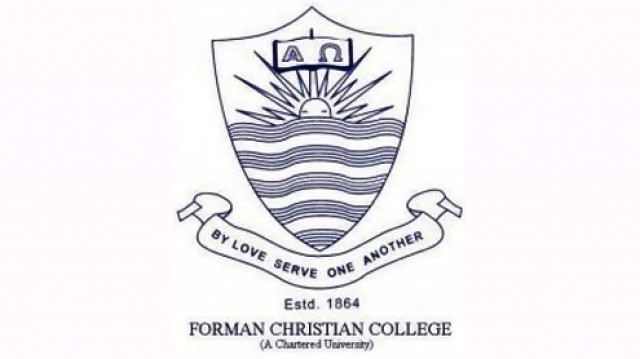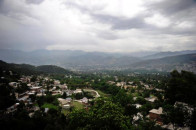Issues in Pakistan: ‘The state discourages discourse on state religion’
Islamotopia, Urdu plays, violence and education system discussed in Seminar.

Issues in Pakistan: ‘The state discourages discourse on state religion’
Culture, said Dr Afroze Taj of the Department of Asian Studies at the University of North Carolina, should be introduced to students in the course of teaching the language it is attached to. Dr Taj said he taught Urdu and ‘Pakistani’ culture using popular Pakistani television plays and films. He praised the plays, saying that they helped people understand the complexity of Pakistani society. The plays, he added, helped dispel the preconceived stereotypes students often developed.
Dr Taj was one of the speakers on the first day of a two-day seminar, Issues in Pakistan, South Asia and Muslim Societies, which was held on Sunday at the Forman Christian College University (FCCU). Organised by the International Islamic University Islamabad, the American Council for the Study of Islamic Societies and the South Asian Muslim Studies Association in collaboration with FCCU, the seminar had speakers from both international and local universities. Issues raised on the first day included the education system and its relevance to society and Islam and violence.
University of Pennsylvania Institute for Research on Higher Education senior associate Dr Mary Linda Armacost shared her reservations over the lack of continuity to ensure strategic planning in local universities, citing the lack of funding for research and development as a prime reason. She said an incentive system should be introduced to facilitate progressive changes. Dr Armacost, in her presentation, ‘Driving Transformational Change in Higher Education in Pakistan, said changes in Pakistan were borrowed from developed countries and incorporated into the system. She pointed out that people often failed to relate to the changes as they were not customised to their needs. Dr Armacost urged the Higher Education Commission to ensure greater investment in universities.
Dr Tariq Rehman, Dean of the School of Education at Beaconhouse National University, spoke about Urdu language in British India and its relevance to peace in contemporary situations. Dr Rehman said that despite Urdu and Hindi having shared a common root, the two languages had diverged from one another due to cultural additions at a later stage. From a cultural perspective, he said Urdu had incorporated ‘Muslim culture’ and Hindi ‘Hindu culture’ and the two languages now had different identities. He said educational policies always had political consequence and should be formulated with a lot of attention and care.
During a session on Islam and Violence, FCCU’s Faculty of Social Sciences Dean Dr Grace Clark raised the question whether or not Pakistan was heading towards religious cleansing. She defined ‘religious cleansing’ as a process in which deliberate acts of violence, humiliation and intimidation were employed to ensure that a religious group was forced to leave a geographic area. She added that though religious fundamentalism was believed to be involved in violence, it did not ‘necessarily’ cause it and there may be several contributing factors.
Calling ‘state religion’ as one of such factors, Dr Clark said religion once promoted to ‘state religion’ has to be defended by the state and discourse that questions it is discouraged. She said minorities in Pakistan were confused when the state did not step in to protect them, leading them to either leave or withdraw from the social fabric.
Dr Muhammad Safeer Awan, assistant professor at the Department of English at the International Islamic University, said post Arab Spring religious parties in Pakistan had tried to engage in awareness raising to bring about a similar revolution in the country. But, he said there was a significant difference in the forces mobilising the Arab Spring and the ones at work in Pakistan.
Dr Awan said ‘Islamotopia’ was a new concept – the idea of the formation of an ideal Muslim state based on a reading of Islam favoured by those forming it. He added that its adherents often presented readily applicable and easy solutions to address complex situations in order to promote their ideals.
On Monday, the second and final day of the conference, 10 speakers are expected to share their insights on topics ranging from art and culture in Pakistan to identity issues of ethnic and religious groups.
Published in The Express Tribune, March 12th, 2012.



















COMMENTS
Comments are moderated and generally will be posted if they are on-topic and not abusive.
For more information, please see our Comments FAQ